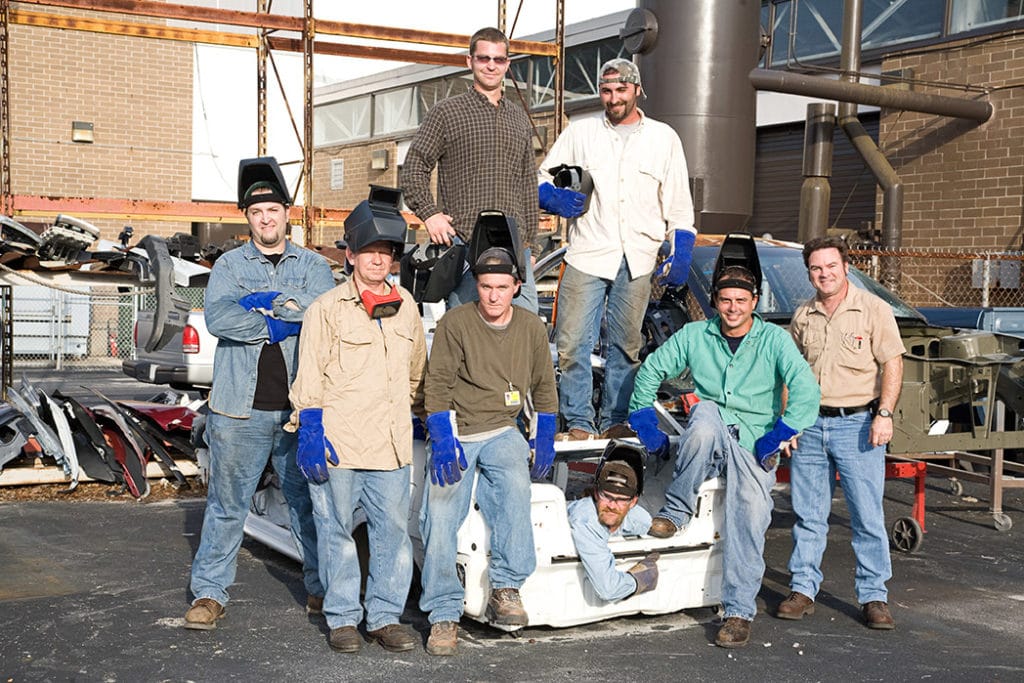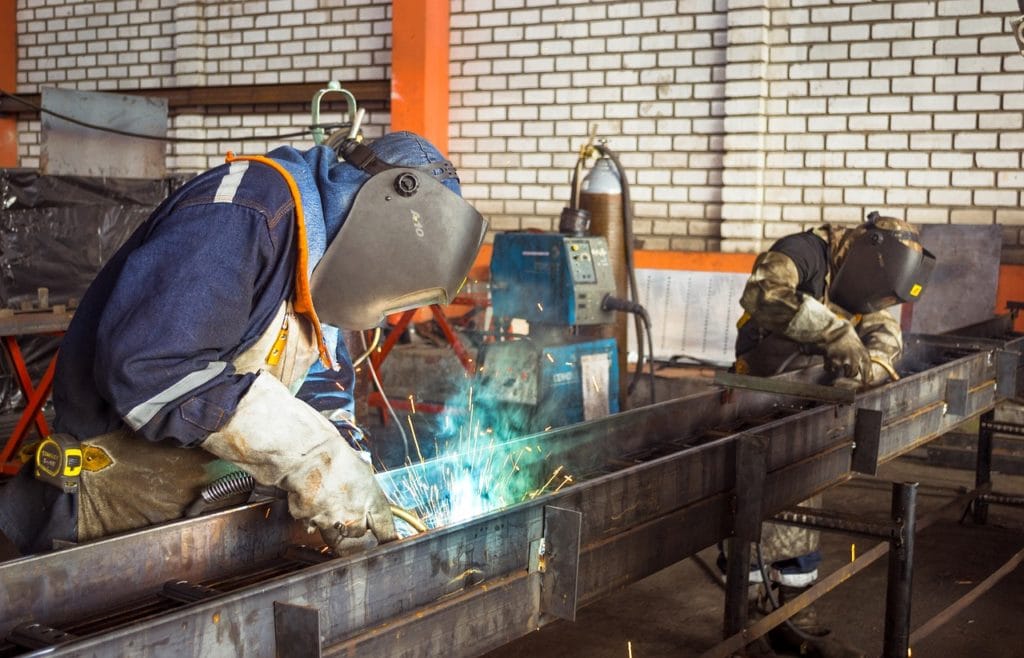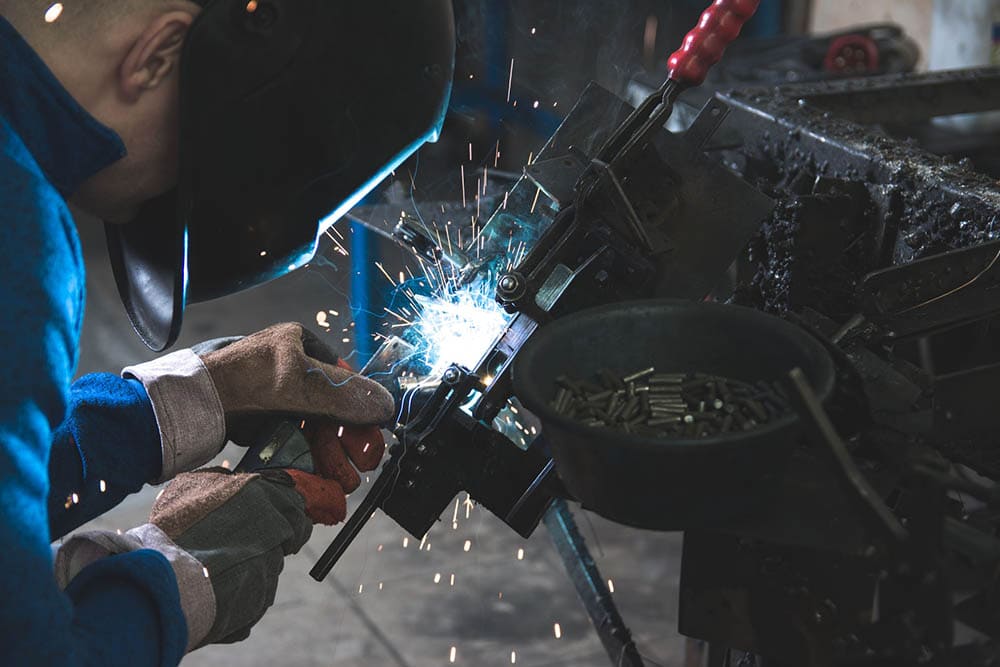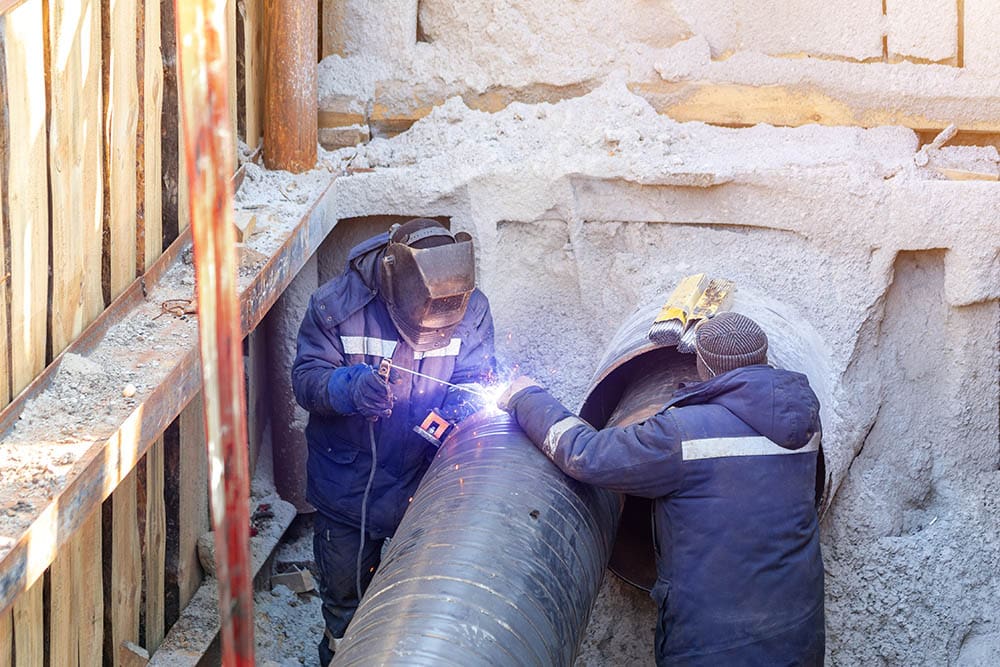How Much Do Union Welders Make? 2024 Salary Statistics
Last Updated on

Welding is an excellent career path to follow. Though mentally and physically demanding, it is perfect for those who like taking on difficult and challenging tasks. The United States Bureau of Labor Statistics (BLS) forecasts a 4% employment growth in welding from 2014 to 2026. This growth is in the gas and arc-welding sector.
One of the most important questions you should ask yourself if you are a welder, is the amount union welders make. To answer this crucial question, let us look at 2021 salary statistics for union welders. It will help you make an informed decision when joining a union.
Keep reading.
Average Union Welder Salary
A union welder’s salary depends on several factors. They include years of experience, the number of years employed by the company, and salary information from the employer.
The average union welder salary for a beginner employee is $35,000 per year. An experienced employee’s average union welder salary is $55,000 per year.

How Much Does a Union Welder Make in an Hour?
Union welders earn an average of $21.10 an hour. But that number varies depending on the job and the region. Factors such as supply, demand, and the type of work done will affect the amount of salary a union welder gets.
For example, some employers pay their employees more when they perform challenging or dangerous tasks. Others will pay more if they schedule shifts that are more regular.
How Much Does a Union Welder Make in a Day?
Welders work long hours. They must be careful when working and must stay focused. If they do not do this, the work will be uneven, and the results will be poor. Most union welders earn an average of $40 to $60 a day. However, this depends on how much work they have to do and how hard they work.
How Much Does a Union Welder Make in a Week?
Most union welders may make less than $1,000 a week while some may make up to $3000. The $3000 may seem like a lot of money, but sometimes it is not enough to cover all the expenses involved in being a union welder.
Besides, being hired as a welder requires a lot of training, experience, and equipment. If you become a union worker, you may be working extra hours at your job to make more money.

How Much Does a Union Welder Make in a Month?
The union welder’s job can be lucrative but it comes with extra expenses. Not everyone can afford to pay union wages. However, if you do, you can maximize your earnings and get union benefits.
According to the US Bureau of Labor Statistics, a union welder makes an average salary of $3,500 per month in wages and benefits. It includes wages for welders who work full-time, such as at construction sites or refineries.
How Much Does a Union Welder Make in a Year?
A union welder makes an average salary of $40,000 per year. It includes salaries, benefits, and overtime, which can increase the take-home pay. That is enough to make a decent living in any country.
Nevertheless, not all welders make the same amount each year. Some make more, others make less, and others nothing at all. It all depends on the industry you are in, how much experience you have, and how in-demand you are.
Who are Union Welders?
A union is a group of workers who come together to pool their collective resources to better their lives. Union members receive hourly wages and are paid overtime time for the work they do.
They pay dues to the union that represents them. Union members also receive benefits. They include health insurance from the union and group disability insurance through their employer’s union.
Welders who belong to a union are called union welders. Union welders work in industries, such as building and construction, transportation, manufacturing, mining, and waste management.
Welding unions are involved in negotiations over wages and benefits. Employers often attempt to influence these decisions, so union welders must understand their legal rights and options. This way, they will not try to negotiate different terms with their employers.

What Do Welders Need to Join a Union?
If you are interested in becoming a union welder, there are many different requirements and steps involved in the process. They include:
A Welding Certificate
A union welding institute offers advanced training in both welding and metallurgy. This hands-on training teaches you the necessary skills to become a union welder.
The welding course offered is eight weeks long. It includes basic instructions in welding, metallurgy, safety, health, and techniques. Upon successful completion of the course, you will be awarded a Certificate of Completion from a recognized welding institute.
Searching for the ideal job
There are numerous places to look but the most important thing is to find a company that will support you financially and professionally.
Complete an apprenticeship or training program
You should complete this program within 12 months of joining as an apprentice. During this time, attend classes and training as required by the company.

What are the Benefits of Joining a Union as a Welder?
Joining a union is an excellent way to get hired on construction projects. Unions provide many benefits to their members. They include health insurance and retirement benefits.
Unions are legal entities, and they must follow several rules to operate. It means that if you join a union, you must follow all their rules. It includes paying dues on time and submitting reports on your monthly earnings.
Do Union Welders Make More Money?
Union welders make more money than non-union welders. Some estimates are as high as 60%. Union welders also earn more in jobs that are more complex such as construction, manufacturing, and mining.
The Bureau of Labor Statistics estimates that 61% of union welders are employed by companies that offer benefits. Unions also lobby for increased funding for their workers’ programs.
Average Welding Union Salary vs. Non-Union Salary
The average welding union salary is $41,000 per year, whereas the average non-union welder’s salary is $39,000 per year. It means that union members earn 20% more than non-union members.
This does not mean that all union jobs pay more. Many non-union jobs (like construction workers or those working in some fields that require manual labor) pay higher than some union jobs.

How does Welding Union Membership affect your Salary?
Here, this depends on where you live, the work you do, and how successful you are at getting employed. If you work in an area with a lot of union membership, then your wages may go up after you have joined the union.
On the other hand, if you work in an area with few union members, then wages may go down after you have joined the union. A welding union membership provides you with a wage subsidy. Your salary will be adjusted every time you get a new job.
In addition, welding union membership provides you with a health insurance subsidy. It means that your health insurance premium will be adjusted each time you take a job. You will also receive several benefits offered by your employer. These benefits range from free meals to annual passes to local attractions.
Welding union membership also affects your salary in two ways.
- It helps you get higher wages
- It helps you get raises and promotions faster than non-union welding members.
When employers are deciding which workers to hire, they look for workers who have the skills to use welding equipment effectively. They also look for workers willing to put in the extra effort to get better pay. Union membership gives employers confidence that you are committed to learning new skills and taking on additional responsibility.
Average Salary for Union Welders in Selected Countries
Here are a few selected countries and how much union welders are paid.
| COUNTRY | AVERAGE WAGE (PER YEAR) | AVERAGE WAGE IN US DOLLARS |
| Canada | 47,999 CAD | $40,476 |
| Australia | 40,000 AUD | $29,953 |
| France | 30,000 EUR | $34,891 |
| United Kingdom | 25,000 GBP | $34,407 |
| Germany | 25,000 EUR | $29,076 |
Final Thoughts
Welding is a skill that takes years of practice to master. Many factors influence how much you make as a union welder. The skill you possess, the type of work you do, the working conditions, and the clients you work with can affect your income. The take-home message is simple-union welders make more than non-union welders. Moreover, union welders are happier with their jobs.
Union welders have more job security, better pay, and more benefits compared to non-union welders in any country. Usually, the wages paid to union welders are higher compared to those paid to non-union welders with similar skills, experience, and responsibilities. So, should you join a welding union? Well, considering the above salary statistics for union welders and the benefits, it will be easy to make a choice on what suits your interest.
